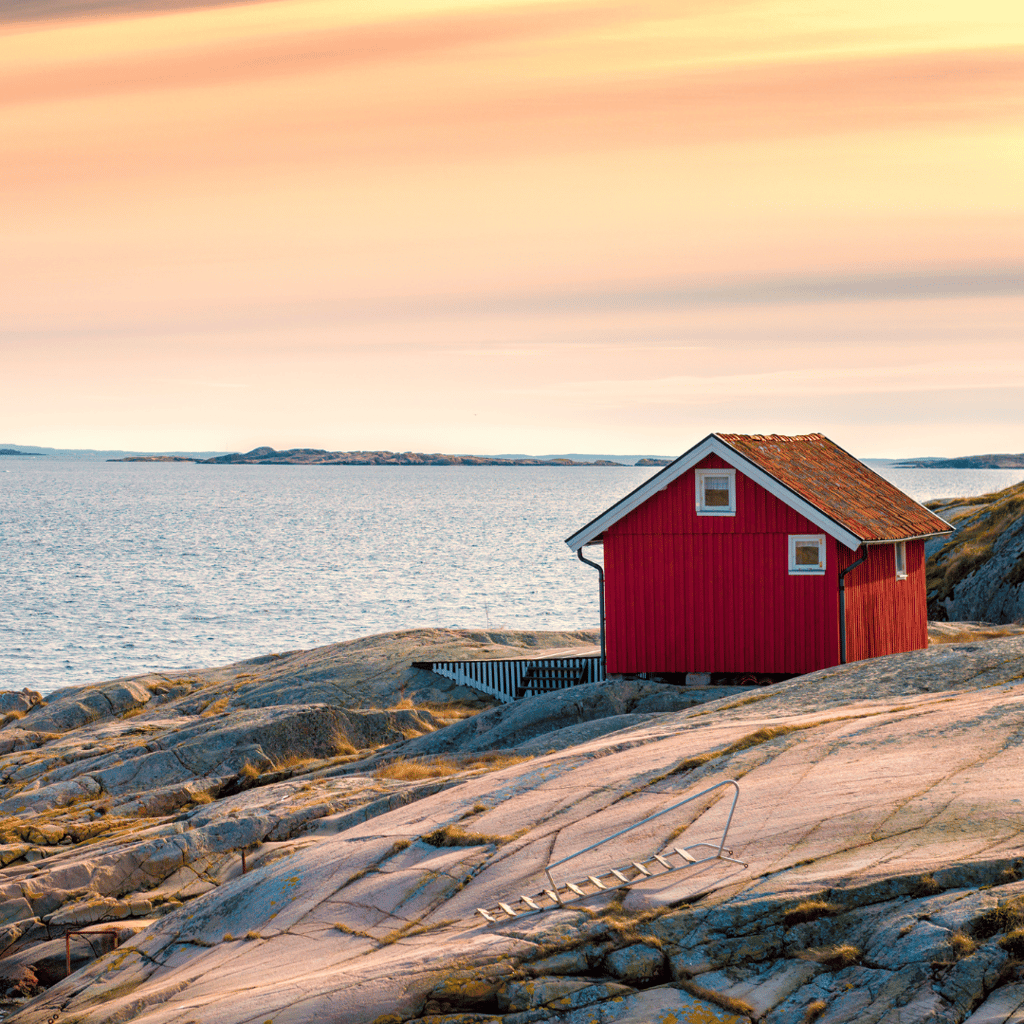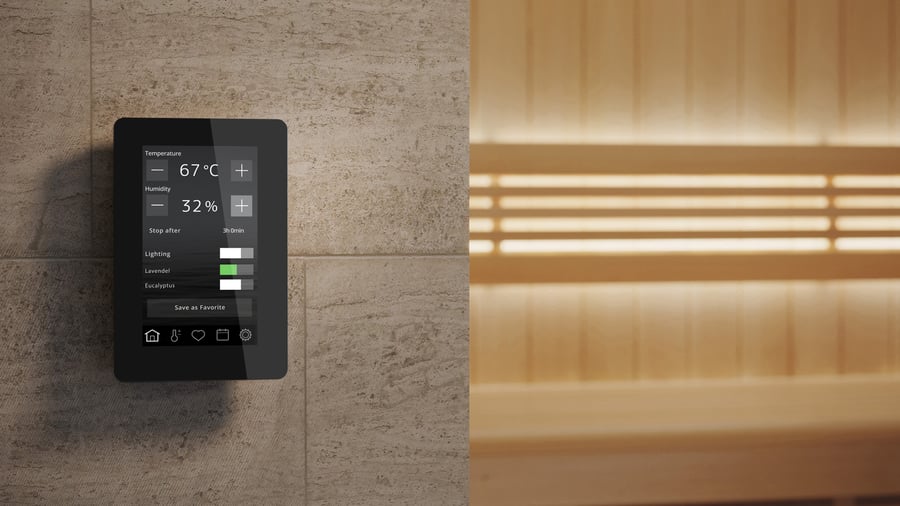5 tips for energy-efficient sauna bathing

The price for electricity has recently skyrocketed and the cost of sauna bathing is a recurring question. Our Technical Expert Magnus answers the most common questions about saunas and energy consumption.
1. How can I effect the energy consumption of my sauna?
Enter the sauna as soon as it's hot enough and avoid having the sauna on without using it. For easy maneuvering of your sauna, install Tylö Elite Control Panel with Cloud Connectivity for full control and flexibility.
2. Does the choice of material and construction affect my power consumption?
Yes. The sauna's design and choice of materials have a major impact on energy consumption. Although many customers prefer large glass areas and tiled walls, there is a great financial gain in maximizing the wood-clad surfaces.
3. What part of the sauna session requires the most energy?
It is mainly the heating of the sauna that uses the most energy, up to 80% of the unit's capacity is needed during the first hour. Not much is required to keep the sauna warm. Having an indoor sauna? Use the residual heat from your sauna as a heat source for your home!
4. How much does one hour of sauna bathing cost?
Thanks to fast heating times, a Tylö heater for home use (6 kWh) uses approximately 5 kWh for one hour of sauna bathing. For two persons using the sauna for 40 minutes (plus 20 minutes of heating) the energy consumption can be estimated to 2,5 kWh per person.
5. What is the most energy-efficient electrical sauna alternative?
Along with the many health benefits of an IR-sauna, the energy efficiency is another incentive to invest in an IR sauna. Infrared technology uses as little or less electricity as many other common household appliances. Since you don’t wait for an infrared cabin to heat up, you can enjoy its benefits immediately.



.jpg?width=1024&height=1024&name=Tyl%C3%B6%20showroom%20vt24-404%20(1).jpg)
%20(1).jpg?width=1024&height=1024&name=Tyl%C3%B6%20Calmar%20Stadshotell%20Commercial%20Sauna%20Silhouette%20(2)%20(1).jpg)